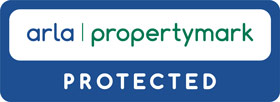
Student Accommodation in London
The Hudsons student guide to renting a property.
After living at home for many years or coming out of halls or previous student housing, renting new property with friends or fellow pupils can be a daunting task. Below are some of the steps and tips that we think will help you along the way.
Before you start looking
Money – decide what you can afford before you start house hunting. Remember, you will have to budget for gas, electricity, water, phone, internet and a TV license, as well as food and general household items. One of the bonuses of being a student is that you do not have to pay council tax for your house, but you must make sure you register with the local borough and let them know. However, bear in mind that should you decide to live with a non-student you will be required to pay council tax with only a 25% discount, so take this into account if this situation occurs.
Choose your housemates carefully – this is very important, as one of the main problems in shared homes is disagreements between housemates. Conflicting lifestyles, recreational habits, personality clashes and hygiene can cause misery and often come to a head during exam time! Remember, you are signing a legally binding contract and will not be able to simply walk away. Have a think about your own lifestyle and what you would like in a housemate, for example reliability and financially sound. If you are an early riser who prefers a quiet and tidy house, do not choose to live with a messy party animal – a fun friend is not necessarily a good housemate.
List the most important things – start looking early and be prepared to compromise. As a group decide on a lead tenant and how to split and share responsibility for bills. Consider how you will pay the deposit and who will be the guarantor for each occupier. What are the deal-breakers? Number of bedrooms? Parking spaces? Proximity to campus? Often it is wise to agree to take a property a month before term starts (if budget allows) as it will not only give you time to settle in to your new domain but will stop you trying to find a property when everyone and their uncle are looking to secure a rental property at the same time! Many leave it until the last minute which often leads to lack of choice and having to make even larger concessions to some points which were once deal breakers, so be prepared!
When to look – availability varies from area to area. Get in contact with your local ARLA agent and they should be able to advise you on the best time to start looking for accommodation in your area.
Location, location, location – most university towns/cities have well-known student areas – ask around. Consider proximity to campus and essentials such as shops, cash points, public transport, and safety (oh, and a good local convenience store for those out of hours needs!)
Choosing an Agent – look for an agent with an ARLA Licensed logo on their website, letting boards and in their office windows. This means that they are expected to maintain standards throughout their properties, and the way that they treat deposit and rent payments is regularly monitored by the association. Not all letting agents are regulated and rogue agents can cause students stress and loss of money. Look for the ARLA Licensed logo and protect yourself and your money. This is essential to safeguard you and your money.

Search for an ARLA agent at: www.arla.co.uk/find-agent
Property Check List
Use an ARLA licensed member to ensure that your accommodation is safe and secure, and that your tenancy runs smoothly.
Space
- Is the layout suitable? Is there enough communal living space?
- Are there enough facilities for the number of housemates? For example, bathrooms, cupboards and fridge space.
- Is there broadband and is it fast enough for the use it will receive?
- Is there enough storage? Is there space for a bike if required?
- If you have a car, is there parking space/permit parking allowed. Many new homes do not allow parking permits so do check.
Condition
- Check for signs of damp.
- Ask to see an Energy Performance Certificate (EPC). From this you can judge whether the energy and heating bills will be high.
- Is the furniture/carpets/decoration in good condition?
- Are there enough radiators throughout the property?
- Is there double glazing?
- Is there working hot water?
Safety and security
- Are there working smoke alarms?
- Are plug sockets free from cracks and other damage?
- Ask the landlord how they will protect your deposit.
- Are all windows lockable?
- Is there a working burglar alarm?
- Ask to see the Gas Safety Certificate. This shows that gas fittings have been inspected and approved.
Questions to ask the current tenants
- What is the landlord or agent like – are repairs done quickly?
- Does the heating work?
- Have they enjoyed living there? Why are they leaving?
- What are the neighbours like?
- Are there any outstanding problems with the house?
Useful information to make a note of
Deposit protection scheme name:
Deposit paid and date:
Additional fees paid and date:
Date tenancy started:
Who will you deal with? What is the Landlord or letting agent name and number?
Protect yourself & your money
Gas safety and electrical certificates – ask to see a valid Gas Safety Certificate and evidence of recent inspection by a qualified electrician. Badly fitted gas appliances or electrics can be deadly, causing fire, explosion and death by carbon monoxide poisoning. Do not take chances – your life may depend on this.
Houses in multiple occupation (HMO) – details of HMO licences vary according to local authority, search HMO licence and your town to find out what is needed in your area. Without a licence the property may not be safe or have enough working smoke alarms and fire escapes.
What if you have a serious problem with the house? – all letting agents are required to sign up to a property redress scheme. ARLA Licensed members will belong to either The Property Ombudsman, Ombudsman Services Property or the Property Redress Scheme. Membership means that if you have a dispute with your landlord, the case can be referred to a neutral expert for independent redress – note which scheme your agent is signed up to.
Protection for your money (client money protection) – all ARLA Licensed agents have to pay into a Client Money Protection scheme. This is one of several additional measures that agents have to satisfy in order to become an ARLA Licensed member.
Signing the contract
The contract – read the contract carefully before signing. If you have any doubts, your Students’ Union will go through it with you. The contract will include the address of the property, the landlord and tenants’ names, relevant contact details, rental amount and date on which it is due. You might agree with a landlord that they will repair something before you move in – make sure this is added to the contract before you sign.
The most common type of contract for students is an Assured Shorthold Tenancy (AST), including the names of all tenants which will be held “jointly and severally liable”. This means that if one housemate leaves the house, the others are still responsible for paying that person’s rent; you are all legally responsible for all of the rent, not just your own. Parents will also be asked to act as guarantors and accept legal and financial responsibility should you fail to pay your rent.
The fees
Holding fee – You may need to pay a deposit equivalent to 1 weeks rent to reserve the property. This is refundable but reasonable costs can be deducted. Make sure that you understand the cost and terms of this and have details recorded for the end of the tenancy.
Security Deposit – You will need to pay a deposit, which will be an amount up to a maximum of five weeks’ rent (for tenancies under a rental amount of £50,000 pa). Your landlord is required by law to register the deposit with a government approved scheme within 30 days of you paying it. They must also give you the details of where the money is being held. Find out more here: www.gov.uk/tenancy-deposit-protection The deposit is refundable unless you have damaged the house or its contents. Make sure an inventory is completed and take dated photos of damage before you move in. Get the agent to date and sign copies of the photos – this could save your deposit at the end of the tenancy!
Moving In
Fill in the inventory – be prepared to make notes on the inventory, from small carpet holes to marks on walls. Get these amends agreed and keep a dated copy signed by the agent. If you do not, expect to lose your deposit!
Change utilities to your name and bank details, read the meters – read your gas and electricity meters when you first move in, notify the utility companies of the change, give them the meter reading, your move in date and ideally the names of all the tenants. This ensures that you share responsibility for the payments.
Buy a TV licence – if you have a television in your house then you need to buy a TV licence, more information can be found here: www.tvlicensing.co.uk
Insurance – according to moneysupermarket.com, one in three university students are victims of crime each year. Gadgets such as laptops are essential for university life, so it is important to get insurance cover. Some students may be covered by their parents’ contents policy however do not assume this is the case. Get the right insurance to make sure your contents are covered. The landlord should pay their own cover for their contents like furniture etc but they will not cover yours. So if you have a computer and jewellery that you cannot afford to replace get it covered. Hudsons can help you with this if you call one of our team on 020 7323 2277.
Throughout the tenancy
- Report any problems/damage as they happen and keep copies to prove that you reported it.
- When you leave for breaks consider leaving heating on low to ensure that pipes do not freeze – you will be liable for the repairs if they do.
- Carry your key on a lanyard around your neck, it reduces the chances of getting locked out.
- Do not chain your bike to a fire escape – it may stop you getting out in an emergency.
- Back up your work to a safe place – if there is a break in you will not need to deal with having lost all of your studies as well.
Moving out – it is recommended that you contact your letting agent a month prior to your moving out date. They will be able to guide you through the process and suggest what action to take in order to reclaim your deposit. Make sure you leave the property in the same condition as the day you arrived including cleaning the property to a professional standard. Club together to pay for a cleaner especially if you do not have time to do this yourselves.





